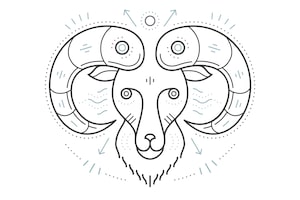Fiction


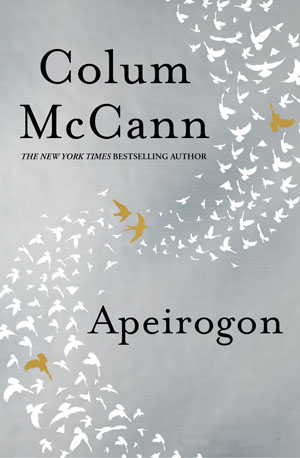
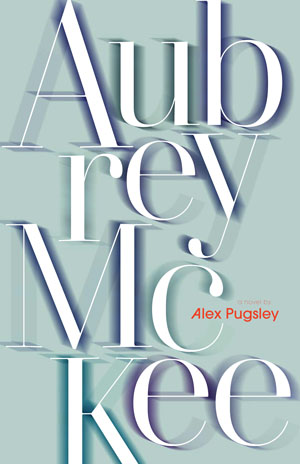
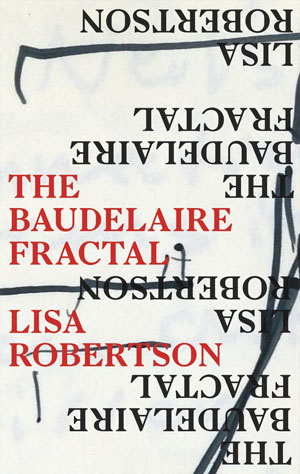
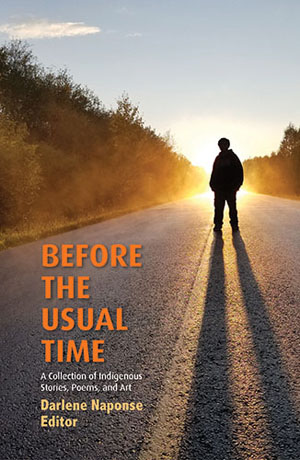
Abigail
Magda Szabo (New York Review of Books, January)
Considered one of Hungary’s greatest novelists, Szabo found new fame in North America after a successful reissue, five years after her death, of The Door. In Abigail, translated by Len Rix, a headstrong teenage girl in post-Second World War Hungary is sent to boarding school and finds herself on a life-changing adventure.
Actress
Anne Enright (McClelland & Stewart, March)
In Enright’s (The Gathering, The Forgotten Waltz) latest, the glamour of postwar America and the shabbiness of 1970s Dublin form the backdrop for a story of stage and screen star Katherine O’Dell as told by her daughter.
Apeirogon
Colum McCann (HarperCollins, February)
Parents from both sides of the Israel-Palestine conflict who have lost loved ones come together to heal in the new novel from the National Book Award-winning author of Let the Great World Spin. Inspired by real people and true events, this story of friendship amid conflict is trumpeted as the author’s most ambitious book to date.
Aubrey McKee
Alex Pugsley (Biblioasis, February)
Billed as “Catcher in the Rye for the 80s generation,” the debut novel from this 2012 Journey Prize-winner is an episodic coming-of-age story set amidst the old-moneyed decadence of seventies and eighties Halifax. Get in on the ground floor for this multiyear project: Aubrey McKee is the first in a five-part series.
The Baudelaire Fractal
Lisa Robertson (Coach House Books, January)
In this debut novel by the acclaimed poet and essayist (Cinema of the Present, Nilling), a poet wakes up in a strange hotel and discovers she has written the works of Charles Baudelaire. This addition to your bookstore’s autofiction section is part memoir, part magical-realist take on contemporary art and the life of a poet.
Before the Usual Time: A Collection of Indigenous Stories and Poems
ed. Darlene Naponse (Latitude 46, March)
In this collection of short fiction and poetry exploring community and time, the Anishinaabe filmmaker and author collected 27 original pieces by 16 Indigenous authors from across North America, including Joan Kane, Craig Santos Perez, Sherwin Bitsui and David Groulx.
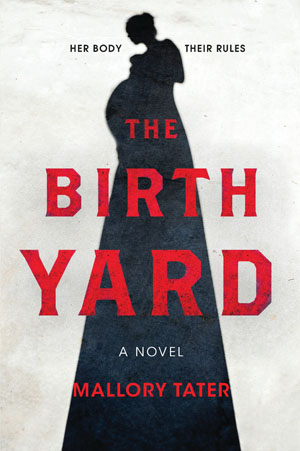
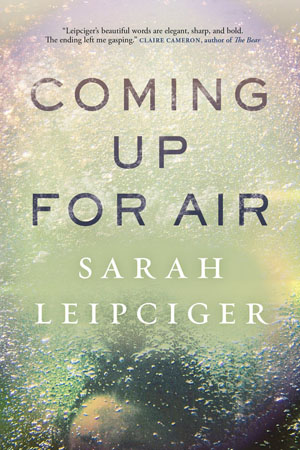
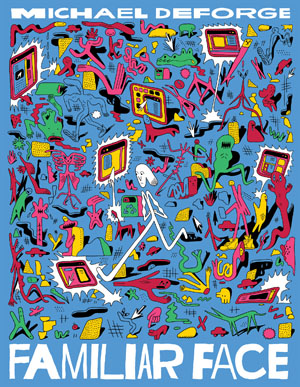
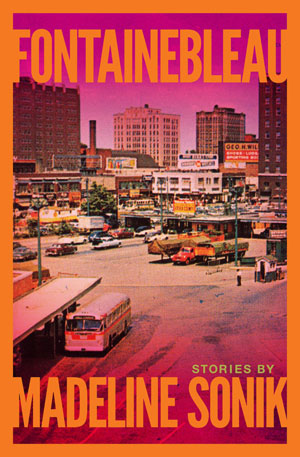
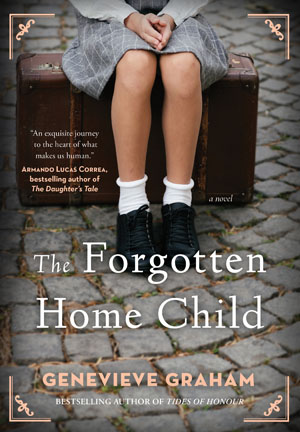
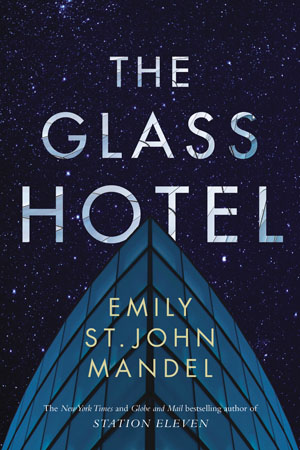
The Birth Yard
Mallory Tater (HarperAvenue, March)
Margaret Atwood fans looking to while away the time until season four of The Handmaid’s Tale can sink into this Canadian debut, which focuses on an 18-year-old woman who rebels against the life of breeding destined for her by a patriarchal cult.
Coming Up for Air
Sarah Leipciger (House of Anansi, March)
How is a young woman’s death in 19th-century Paris connected to your modern CPR class? Inspired by a true story, this new historical novel from the author of The Mountain Can Wait examines the ripple effect of a young woman’s River Seine suicide across decades and continents.
Familiar Face
Michael DeForge (Drawn & Quarterly, March)
In this graphic novel, people search for connection in a society where both bodies and infrastructure are constantly updating. The vibrant colour and surreal design of DeForge’s melancholy love story captures the disorientation felt by the characters living in a fluid world where they have no control.
Fontainebleau
Madeline Sonik (Anvil Press, March)
In these linked stories by fiction writer, poet and essayist Sonik (her Afflictions & Departures was an RBC Taylor Prize for nonfiction nominee), a city on the banks of the Detroit River becomes the setting for the strange and sometimes magical goings on of a cast of misfits.
The Forgotten Home Child
Genevieve Graham (Simon & Schuster Canada, March)
A pre-Second World War scheme to rid England’s streets of destitute children is the inspiration for this century-spanning story of chosen-family ties, the latest from the bestselling author of Come From Away.
The Glass Hotel
Emily St. John Mandel (HarperCollins, March)
There was a time when seemingly half the people you knew were reading (and loving, and recommending to everybody else) the page-turner Station Eleven. Nearly five years later, the author’s eagerly awaited follow-up is a story of white-collar crime that moves between Manhattan, a container ship off the coast of Mauritania and remote British Columbia. Part ghost story, The Glass Hotel connects a cast of artists, Wall Street tycoons and people eyeing retirement through a Ponzi scheme that implodes, shattering the “kingdom of money” inhabited by its creators and the daily security of its victims. And within this web, two siblings are connected even while both try to disappear.
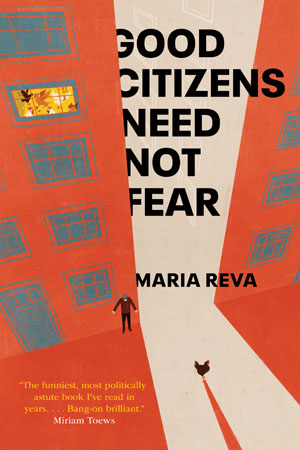
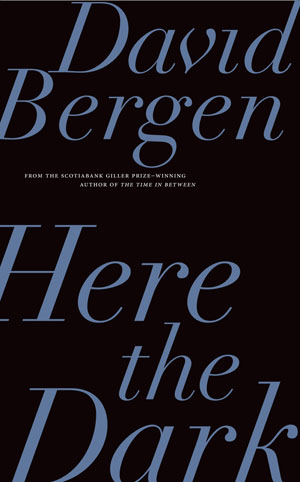
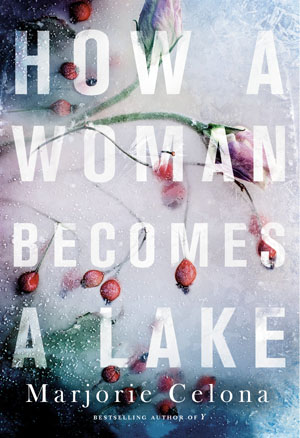
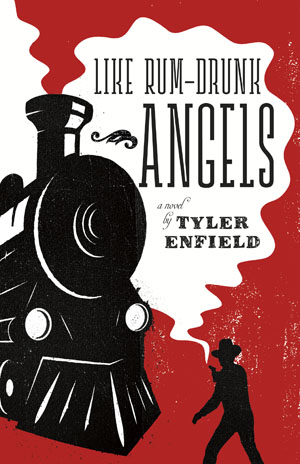
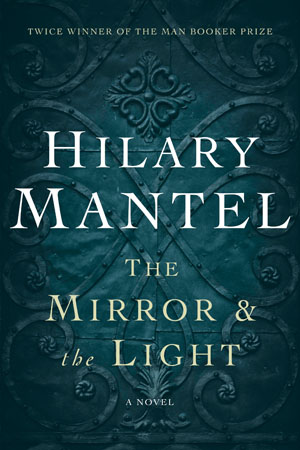
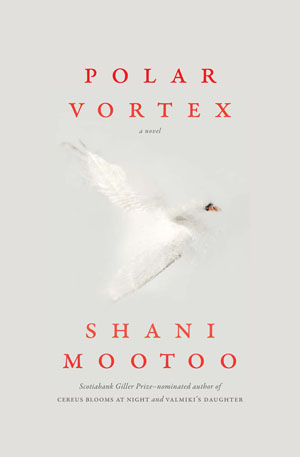
Good Citizens Need Not Fear
Maria Reva (Knopf Canada, March)
Praised by Miriam Toews as “the funniest, most politically astute book I’ve read in years,” Reva’s tender, absurdist novel-in-stories, inspired by her own family’s experiences in Ukraine, takes place in a Soviet-era Ukrainian apartment building, which has been expunged from official records owing to a bureaucratic glitch.
Here the Dark
David Bergen (Biblioasis, March)
A book about grace and redemption, the Giller-winner’s (The Time in Between) new collection of stories takes readers from the streets of Danang, Vietnam, to the islands of Honduras, to the Canadian prairies.
How a Woman Becomes a Lake
Marjorie Celona (Hamish Hamilton, March)
In this icy thriller – the author’s first novel since 2012’s hugely successful Y – multiple unreliable narrators are connected by the truth of what happened to a woman who disappeared in a small fishing town on New Year’s Day.
Like Rum-Drunk Angels
Tyler Enfield (Goose Lane, March)
Employing traits from the playbooks of both the Coen Brothers and Walt Disney, this Western stars 14-year-old gunslinger Francis Blackstone on a journey to make his fortune and win a young lady’s heart. A buddy-novel with bandits, bank robbing and adventure a-plenty.
The Mirror and the Light
Hilary Mantel (HarperCollins, March)
What will Cromwell do when the King inevitably turns on him as well? Mantel’s multiaward-winning trilogy (Wolf Hall and Bring Up the Bodies) about Thomas Cromwell, Henry VIII’s one-time right-hand-man, concludes in this highly anticipated (likely award-winning) tome.
Polar Vortex
Shani Mootoo (Book*hug Press, March)
A woman moves to the country with her past in hot pursuit in this tension-filled story of secrets and revenge. Mootoo (Moving Forward Sideways Like a Crab, Cereus Blooms at Night) prods at the seams of a relationship and tugs at the loose ends of the life that came before.
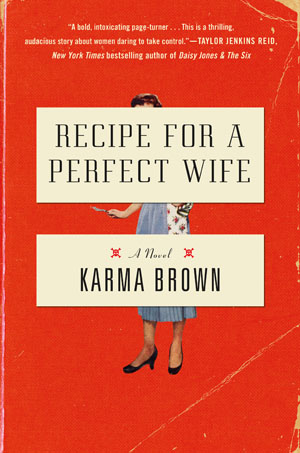
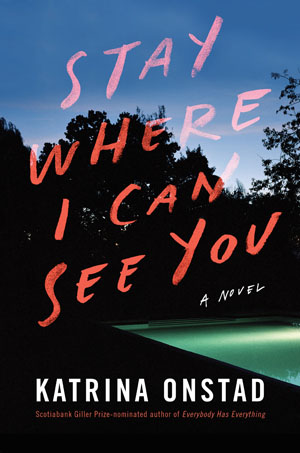
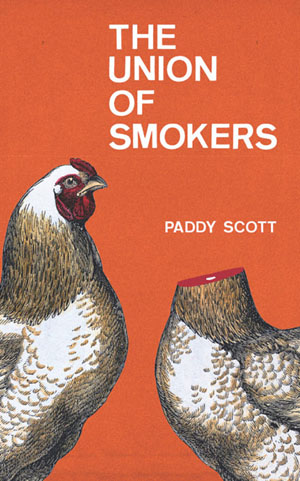
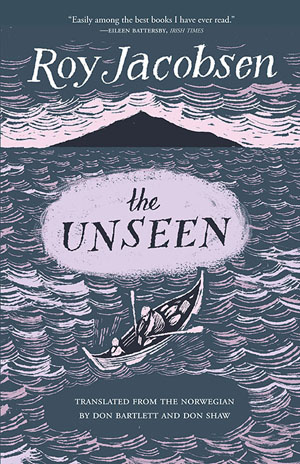
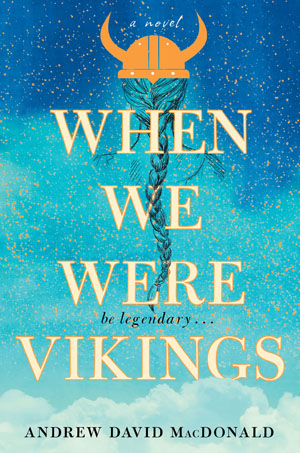
Recipe for a Perfect Wife
Karma Brown (Viking Canada, January)
A bored-in-the-suburbs woman starts to work her way through an old cookbook found in her basement and becomes fascinated by the 1950s housewife who left it there. She soon finds the secrets hidden inside are for more than just cooking. Fans of Daisy Jones and the Six will take to this new novel about women taking control, from the bestselling author of Come Away With Me.
Stay Where I Can See You
Katrina Onstad (HarperCollins, March)
Money changes everything in this third novel from Onstad (How Happy to Be, Everybody Has Everything). A family’s $10-million lottery jackpot win forces them into a new city and social circle, and soon starts to reveal cracks in mom Gwen’s carefully constructed domestic ideal.
The Union of Smokers
Paddy Scott (Invisible Publishing, March)
The final day in the life of chain-smoking 12-year-old Kaspar begins with a search for a canary and ends in an ambulance with an almighty “theme essay” on the boy’s lips. Set in the late sixties in small-town Ontario, this heartfelt debut offers up an odd and oddly wise hero.
The Unseen
Roy Jacobsen (Biblioasis, March)
Set on an isolated island where residents are at the mercy of the moods of the sea, Jacobsen’s stormy novel was a bestseller in Norway and earned a nomination for the Man Booker International Prize when it was released in the United Kingdom. Canadian readers can finally get their hands on a copy this winter, moodily translated by Don Bartlett – of Karl Ove Knausgaard and Jo Nesbo translation fame – and Don Shaw.
When We Were Vikings
Andrew David MacDonald (Scout Press, January)
Likely to appeal to fans of The Curious Incident of the Dog in the Night-Time, this uplifting Canadian debut is a story of adult siblings trying to keep afloat. When Gert resorts to some risky methods to make money, Viking enthusiast Zelda decides to launch her own quest to be legendary.
Non-fiction
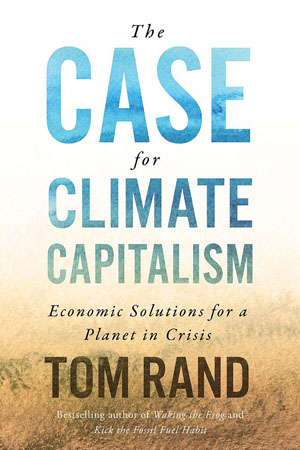
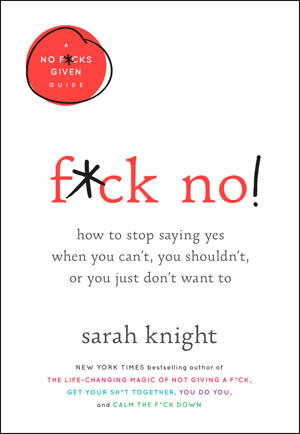
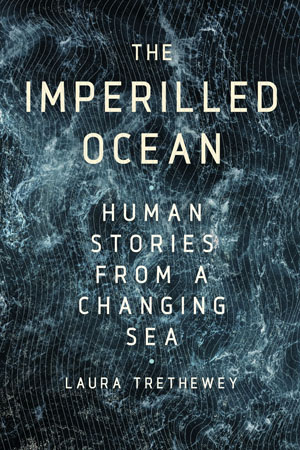
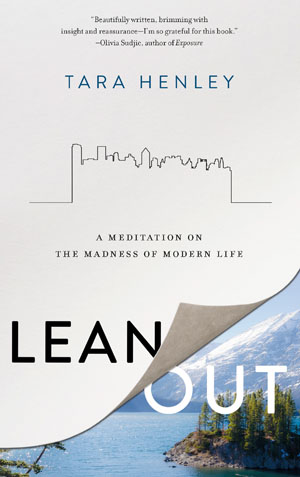

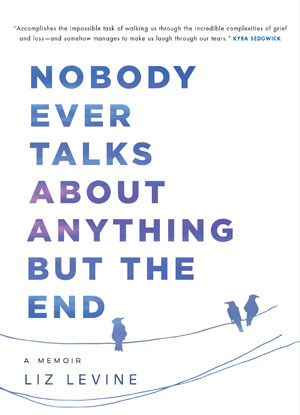
The Case for Climate Capitalism: Economic Solutions for a Planet in Crisis
Tom Rand (ECW, March)
Beginning with a letter to his unborn child, Rand combines the personal, practical and political to argue for a response to the climate crisis that moves beyond left/right ideologies: building an economy to replace our reliance on fossil fuels.
F*ck No! How to Stop Saying Yes When You Can’t, You Shouldn’t, or You Just Don’t Want To
Sarah Knight (Little, Brown, January)
The original anti-guru of The Life-Changing Magic of Not Giving a F*ck fame helps you start the year by saying “no” with confidence.
The Imperilled Ocean: Human Stories from a Changing Sea
Laura Trethewey (Goose Lane, February)
Journalist Trethewey explores Earth’s final frontier through several stories of life on the water. This work of narrative journalism uses human drama to illustrate the growing instability of the oceans and their influence on those living on land.
Lean Out: A Meditation on the Madness of Modern Life
Tara Henley (Appetite, March)
Journalist and broadcaster Henley documents the work-induced health crisis affecting many in the 21st century. Part memoir, part travelogue, part investigation, Lean Out makes a direct connection between anxiety and overwork.
Next: Where to Live, What to Buy, and Who Will Lead Canada’s Future
Darrell Bricker (HarperCollins, March)
Where and how will we live? What will we buy and build? Who will we elect? Bricker, CEO of Ipsos Public Affairs, uses extensive demographic data to forecast where our world is headed and how it will affect decisions we make at work and at home.
Nobody Ever Talks About Anything But the End
Liz Levine (Simon & Schuster Canada, January)
In this touching account of loss, grief, mental illness and suicide, the author celebrates the lives of two lost loved ones and the lives of those who remain. Haunting and filled with dark humour, this is an honest and calm look at the chaos of life.
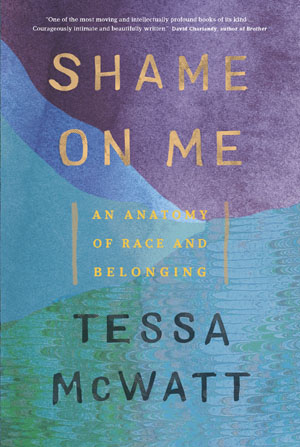
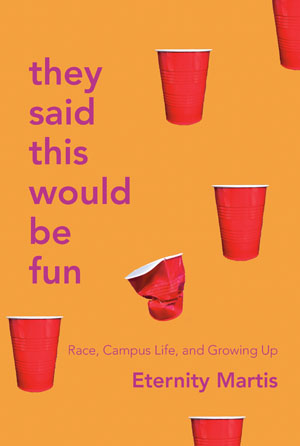
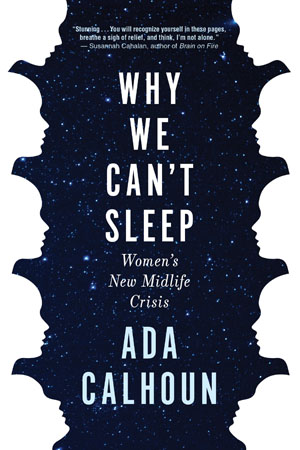
Shame on Me: An Anatomy of Race and Belonging
Tessa McWatt (Random House Canada, March)
Acclaimed novelist McWatt turns her eye on herself and her own multiracial identity to interrogate ideas about race. Brother author David Chariandy has already praised it as “one of the most moving and intellectually profound books of its kind.”
They Said This Would Be Fun: Race, Campus Life, and Growing Up
Eternity Martis (McClelland & Stewart, March)
A female student of colour encounters an entitled culture of racism and sexism in a predominantly white college city, but elects to stay even while other students feel driven out.
Why We Can’t Sleep: Women’s New Midlife Crisis
Ada Calhoun (Grove, January)
In an expansion of her viral piece for Oprah.com, Calhoun looks at the midlife crisis facing Gen X women raised to “have it all.” As many find themselves juggling careers, caring for aging parents and mothering young children, Calhoun offers ways to smooth the midlife transition.
Poetry
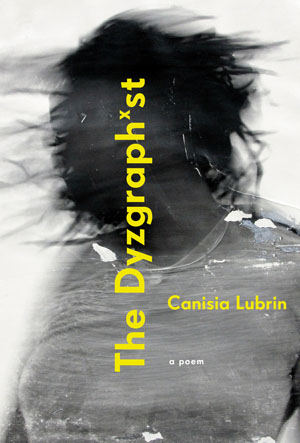
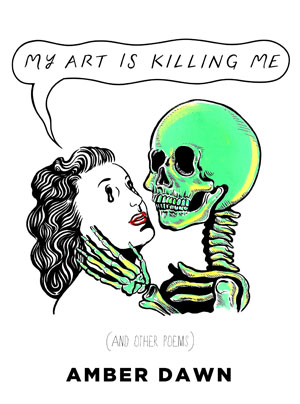
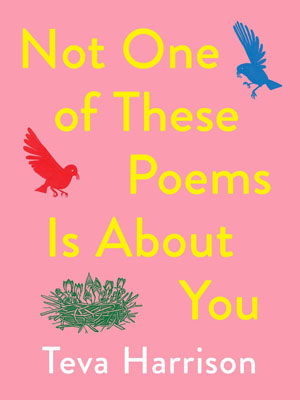
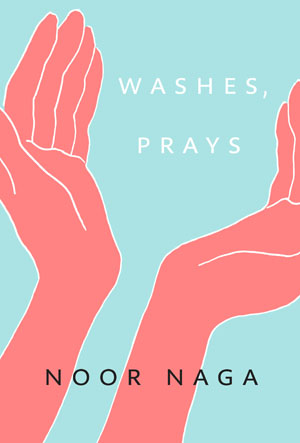
The Dyzgraphxst
Canisia Lubrin (McClelland & Stewart, March)
Seven inquiries into selfhood make up this second collection from the author of Voodoo Hypothesis. Set against the backdrop of capitalist fascism, toxic nationalism and climate disaster, the perennial figure in these poems, Jejune, asks questions about identity and kinship.
My Art Is Killing Me and Other Poems
Amber Dawn (Arsenal Pulp Press, March)
In her second collection, poet, novelist and memoirist Dawn (How Poetry Saved My Life, Sodom Road Exit) considers the cost of coming out on the page and of the toll that making art takes on artists.
Not One of these Poems Is About You
Teva Harrison (House of Anansi, January)
In her devastating 2016 graphic memoirs, In-Between Days, Harrison chronicled in prose and images her experience of living with metastatic breast cancer. This frank and gut-wrenching collection – published posthumously – continues that journey in picture and verse.
Washes, Prays
Noor Naga (McClelland & Stewart, March)
The RBC Bronwen Wallace Award for Emerging Writers-winner’s debut – a heartbreaking and hilarious novel-in-verse – is about a young woman’s relationship with a married man and the crisis of faith that comes after.
Expand your mind and build your reading list with the Books newsletter. Sign up today.
